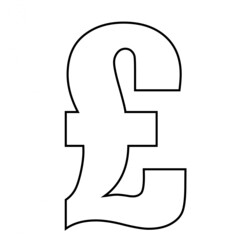The 50-Pound Note Experiment and the "War on Cash"
Britain is actually seeing a rebound in cash payments [1, 2] (a return and increase in usage!), and it's not a temporary phenomenon, so what they keep telling us is undesirable and not desired by people (even making it a lot harder for them to get and use cash) is in fact preferred by many people; they still find a way to do things the simpler and safer way
The notorious "War on Cash" is one thing. It is connected to a few others, which can be deemed related to money-handling (physical handling). We covered this many times before (in this site); similarly we wrote about "Cashless" (outright rejection of all of it, not mere discouragement or frowning faces), "Paperless", a lack of ATMs, and "Self-Service" tills.
The rapid "War on Cash" is not an old thing. It is a relatively new spectacle*, accelerated by COVID-19 (some local shops would not even sell a bottle of water unless you used a "card" or "app"). It's a new thing. As in the past decade or so. It was not infeasible in the 90s or even the late 80s, but businesses didn't pursue this particular agenda back then: no tills, no cash, and various other hostilities towards their customers. Customer support was always an actual person, never a chatbot, either. What changes is not the underlying technology but the business agenda.
Don't let them paint this as a "Luddite" thing. Machinery and automation are not the same as physical bartering methods.
The rejection of legitimate banknotes is not a new problem, especially the 50-pound note. Wetherspoon still does not accept it (despite the inflation and despite being a very large business), just like most places back in the 1990s. That's weird, as even some small pubs accept those notes (notes which are commonly acquired and used by travellers because banks and exchange stalls issue these to them). As Andy put it 19 days ago: "In my hand I held 50 pound note, still rare enough in Britain to be considered a grenade thrown into the works of a delicate technological machine. I felt a little guilty and expected to be sent away to get "something smaller" or told "card only". At very least it should have provoked a thorough anti-counterfeiting shakedown involving ultraviolet scanners, conference with bosses and suspicious stares, but instead she hardly looked at it, popped it into the till and counted the correct change."
A day after I had successfully used 50-pound notes (right after the holidays, we had many 50s remaining) in all sorts of bargain stores in smaller suburbs of Manchester I was a bit shocked that Wetherspoon would not accept them. I wasn't horrified that some very small stores would wait and ask a "higher-up" for advice. Why couldn't Wetherspoon? In 2025? I mean, what does a 50 even buy you now? Not even a concert ticket. And service desks/box office would gladly accept 50s, with barely any hesitation (I also checked they still issue physical tickets, as not everyone has Android/iOS with "app").
So we went to Next (Lowry Mall) and they did in fact accept those "large" notes. Then we did the same at M&S. No problem at all. They even had people who do the servicing. There are few places that have no tills anymore and which don't accept cash, so that Wetherspoon in Trafford Centre that does not honour 50-pound notes (at all; not even escalating to a boss) is quite noteworthy. It is apparently the same in all the Wetherspoons - i.e. a universal policy.
People need to insist that all bartering items issued by the Government (unless outdated) should be fully honoured. If many people started faking tens and twenties, would those too be frowned upon or rejected? The common excuse is, 50s are commonly counterfeited or are targeted by counterfeits. But so what? Why presume the worst?
The "War on Cash" can take many forms. This might be one of them. By the way, given the rate of inflation, or given how long we've had 50s, should we not also have hundreds? Scotland has long had a £100 note. England hasn't. If you lose or leave behind your "smart" phone, then good luck protecting your money among so many other things (more valuable to you than "just money"). If you lose your card... same. It might get 'used up' (account emptied) before you manage to cancel it (or even notice that it's missing**) █
_____
* Sweden tried it and it angered people. But we focus on this pseudo-Utopia in Britain, as we lack direct experience with the Swedish system.
** A friend of mine had his card stolen in Manchester and by the time he noticed it was already on its way to Liverpool, where the thief used it to make over a grand in payments. The bank didn't protect my friend from that. Had he carried only cash, the damage would be limited greatly and there would be no hassle involved with cancelling a card, having a new one issued and delivered, then many businesses properly informed. Simple means simple. Simple means that if or when things go wrong, they cannot go very wrong.

